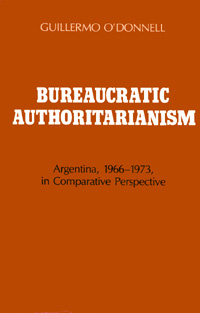THE BUREAUCRATIC PHENDMENON
The Bureaucratic Phenomenon
Michel Crozier with a new introduction by
Erhard Friedberg
Originally published in 1964 by The University of Chicago Press.
Published 2010 by Transaction Publishers
Published 2017 by Routledge
2 Park Square, Milton Park, Abingdon, Oxon OX14 4RN
711 Third Avenue, New York, NY 10017, USA
Routledge is an imprint of the Taylor & Francis Group, an informa business
New material this edition copyright 2010 by Taylor & Francis.
All rights reserved. No part of this book may be reprinted or reproduced or utilised in any form or by any electronic, mechanical, or other means, now known or hereafter invented, including photocopying and recording, or in any information storage or retrieval system, without permission in writing from the publishers.
Notice:
Product or corporate names may be trademarks or registered trademarks, and are used only for identification and explanation without intent to infringe.
Library of Congress Catalog Number: 2009044628
Library of Congress Cataloging-in-Publication Data
Crozier, Michel.
[Phnomne bureaucratique. English]
The bureaucratic phenomenon/Michel Crozier.
p. cm.
Originally published: Chicago: University of Chicago Press, 1964.
Includes bibliographical references and index.
ISBN 978-1-4128-1158-3 (alk. paper)
1. Industrial management. 2. Bureaucracy. I. Title.
HD33.C743 2010
302.35--dc22
2009044628
ISBN 13: 978-1-4128-1158-3 (pbk)
The two research projects which served as starting points for this new discussion of the theory of bureaucracy were accomplished under a grant from the French Commissariat Gnral la Productivit. I want to express thanks to M. Francis Raison now director of the productivity division of the Commissariat Gnral au Plan for the help he gave me.
A number of people have helped me temporarily in these two projects and I cannot thank them all here, but I want to express my most grateful thanks to Mrs. Colette Barreau, who was my assistant during three years for the second study, on the Industrial Monopoly. Her contribution was always enriching and many of the ideas to be found here originated during our discussions.
It has been necessary to hide the names of the organizations studied and I must therefore thank anonymously the managers and executives, the trade union officials and local secretaries, whose help was decisive in securing the approval of the work community. I want to express my gratefulness especially, of course, to all the interviewees, workers and supervisors, whose good will and active co-operation we could enjoy for a kind of activity which was completely new in France at the time.
The first idea of the new theory of bureaucracy came out of my thoughts and discussion at the Center for Advanced Study in the Behavioral Sciences at Palo Alto, California, in 1959-60. I owe very much to the environment and stimulation such an institution provides, and I want to thank my colleagues of that year, especially Conrad Arensberg, Sigmund Diamond, and Herbert Kaufmann, for their comments and criticisms.
The first draft of this book was written originally in English, with the help, for , of Miss Miriam Gallagher. It was then rewritten completely in French. For the final editing of the present English version I owe very much to Mrs. Erika Langmuir, who struggled patiently with my French colloquialisms.
It is hardly controversial to consider Michel Croziers The Bureaucratic Phenomenon as a classic in organizational analysis. Written first in English and then in French and published almost simultaneously in 1964 by Chicago University Press and Editions du Seuil in France, the book is a perfect example of the cross-fertilization of American and European sociological traditions that took place in the 1950s and early 1960s during the post-war reconstruction of sociology in continental Europe. It clearly draws on some of the European or specifically French intellectual traditions such as Sartres existentialism, de Tocquevilles analysis of France or Max Webers sociology of bureaucracy, while integrating and making use of all the theoretical developments and empirical results in the field of industrial and organizational sociology, game theory and decision theory that had blossomed in the United States in the wake of the Hawthorne studies and World War II. At the same time, and to some extent probably because of its hybrid nature, the story of the books reception as well as its standing in the sociological literature on organizations up to today particularly in the United States and the Anglo-Saxon world is characterized by a deep misunderstanding of its intentions, its scope as well as its implications for the theory and practice of organizational analysis.
Before going deeper into the presentation of the book and the curious story of its reception, a few words of presentation of the books author are in order. To sum up his biography, Michel Crozier is something of a self-made sociologist. He is not a university-trained sociologist, nor is he an alumnus of the Ecole Normale Suprieure where most of his peers and most members of the French intellectual elite come from. His entry into sociology was due to chance. After having completed business studies and having started a law degree, he was selected in 1947 for a scholarship that sent him to the United States for fifteen months to study the American labor-union movement. Crozier spent his time crisscrossing the States and interviewing local union officials. The book that came out of this discovery of postwar American unionism, was his first venture into sociological territory.But more importantly, he took back to France in his own words a basic sympathy and interest for the American society, a passion for fieldwork and for the empirical analysis of social processes and a basic intuition for the possible and necessary contribution of the social sciences to bringing about social change, an intuition that became a permanent preoccupation in his later work. The groundwork was laid for the two faces of Michel Crozier that will be of interest in this introduction, Michel Crozier the sociologist and Michel Crozier, the social reformer.
The 1950s saw his slow evolution from something like a non-conformist, leftist and vaguely existentialist Marxist gravitating around Sartres periodical Les Temps Modernes where he published his first articles, to a serious empirical researcher engaged in the empirical study of work and work-organization in a series of different settings. It all started with the research-project that got him his job as a research-fellow at the French National Center for Scientific Research: it was built around the question why office workers were not class-conscious as they should have been according to Marxist theory. Six years later, he had finished an impressive series of empirical studies in several banks (most of them public), in six insurance companiesleading forum of the politico-administrative reform-movement active during the early 1960s in Gaullist France. Crozier the organizational sociologist and Crozier the social reformer had emerged.
Crozier used the year in Palo Alto to take stock of, and put into perspective, all the empirical investigations he had accumulated and started writing what was to become the English version of The Bureaucratic Phenomenon . Several of the ingredients that make the lasting interest and the distinctive personality of this book are linked to discoveries and intellectual borrowings made by Crozier during this decisive year spent in Palo Alto and traveling to some of the centers of academic life and excellence in the Unites States. The first borrowing concerns the relational concept of power which was then being developed and discussed in American social sciences around in particular the work of R. Dahl and R. Emerson: that enabled him long before mainstream organization theory to intuitively grasp and exploit the deep sociological significance of this concept which at that time had not been recognized widely in the social sciences and had hardly penetrated the sociological analysis of organizations. Together with his relational understanding of power, Crozier has made it the backbone of the analytical framework which he developed in the third part of his book. Add to that his interest in cultural anthropology as well as his acquaintance of, and continuous interaction with, a group of scholars working on France at Harvard University and gathered around Stanley Hoffman, and you have the key to an understanding of the culturalist interpretation of the behavioral traits of French Bureaucracy which makes up the fourth part of the book.










